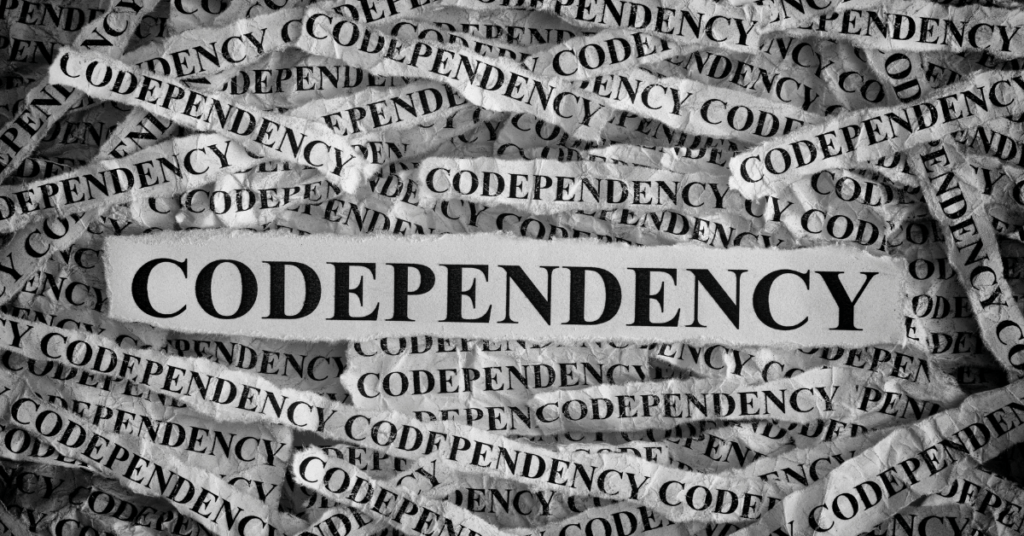Contents
What Is Codependency?
 Codependency is a condition of interdependence. It arises from patterns that develop in relationships where one person depends on the other for emotional support and keeps that other person dependent through controlling behaviors. Below we will discuss the symptoms of codependency in detail.
Codependency is a condition of interdependence. It arises from patterns that develop in relationships where one person depends on the other for emotional support and keeps that other person dependent through controlling behaviors. Below we will discuss the symptoms of codependency in detail.
Being codependent is different from being dependent. Codependency is not healthy self-love. It’s an unhealthy need for another person to take care of you, relying on them for your happiness and self-worth, and cutting yourself off from the ability to feel good without them.
Codependency Symptoms
You’re codependent and if so, how do know for sure. There are a number of different codependency symptoms that could indicate if you may be codependent on someone else. Codependency is a term used to describe a type of behavior often exhibited by people who have been raised in dysfunctional families or have experienced trauma. If you think there’s a chance you might be codependent. The following list of codependency symptoms might help you determine if this is the case:
- Blaming others for your feelings
- Blocking out your own feelings
- Caretaking other people’s feelings and problems at the expense of your own
- Failing to achieve personal goals because you’re too busy taking care of other people’s needs
- Feeling like you would be nothing without the other person in your life
- Living through your children to make sure they turn out OK
- Making huge sacrifices for the sake of another’s feelings
- Not feeling good at doing anything if you’re not involved in a relationship or helping someone else (for example, you feel useless if you’re not taking care of someone or something)
- Putting your own needs on the back burner to take care of other people’s feelings and problems
- Thinking that you can “heal” another person (or change their behavior) by boosting them up and helping them feel better
- Feeling ashamed about yourself, often feeling unworthy or undeserving of the treatment you get
Is It A Personality Disorder?
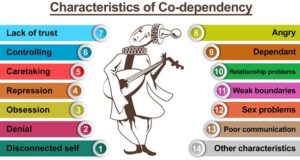
A personality disorder is characterized by extreme emotional dependence on relationships and difficulty in identifying and expressing one’s own needs. People with this condition typically have an exaggerated sense of responsibility for the actions of others, which they may attribute to a feeling of obligation rooted in genuine compassion or love. They may put another person’s happiness ahead of their own, neglecting their own needs or placing them on the back burner. The codependent individual may assume an inappropriately subordinate role in relationships with people who display exploitative, manipulative, or abusive behavior. When the relationship ends, the codependent feels abandoned and alone; s/he thus begins another dysfunctional relationship.
A pervasive pattern of putting one’s own needs aside to take care of others. Feeling and acting self-sufficient and needing no help from anyone, even though you may actually be struggling with a great burden. When you feel that people are trying to help you or rush in to do things for you, such as cooking your meals or doing your laundry, you might feel resentment. A strong need to be needed by others is also a sign of codependency.
Codependency In Relationships
Typically one person is more codependent than the other in a relationship. The person with less codependency gets their emotional needs met by the other person, and this dynamic goes on for years. But gradually, it becomes harder and harder for both people to get their needs met. The codependent person is not able to feel self-empowerment, and the other person feels like their partner is way too high maintenance. Ultimately both people end up resentful and disappointed in each other.
If you’re asking yourself if you might be codependent, it’s important to take a good look at your relationships and look for the codependency symptoms. Do you feel like your emotions depend on another person? Is someone else’s happiness or success more important to you than it is to them? If their life takes a few “wrong turns,” does it make you feel sad, anxious, depressed, and powerless? If this sounds familiar, consider talking to a therapist about whether or not codependency might be part of the problem, whether you’re in a relationship or not.
When you are in a relationship with someone who has codependent tendencies. It’s important to remember that even if it seems like you could be doing more for them. They may not be able to change their behavior unless they get help. You can’t “fix” them, and they may not be able to fix you either. It can also help to focus on what you need for yourself rather than focusing on your partner’s behavior.
When one person in a relationship is codependent and the other is not, it’s important to understand that your feelings and actions can’t “make” them change. No matter how much you love someone or want them to be different from how they are, only when they’re ready will they be able to look at themselves and see what needs to change?
Causes Of Codependency
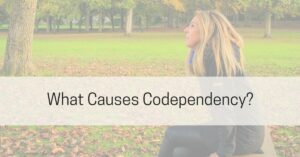
Codependency is a psychological condition in which someone has an excessive emotional or physical need to be with somebody else, or is dependent on somebody else. They have usually loved ones who may have good intentions, but codependent people can’t meet their own needs.
There are many possible causes of codependency. Biological factors may include birth order, genetics, or child abuse. Psychological factors are more likely to include unstable family life, low self-esteem, and poor coping skills.
Emotional abuse often creates codependent people because they’re fearful of being abandoned. If they don’t do what they’re told or there aren’t any limits set for them in their lives. The causes that lead to codependency are varied but include childhood traumas. Such as abuse or lack of love and support from parents during the developmental years. In some cases, a child may grow up witnessing abuse and violence. That leads to them not knowing how to cope with difficult situations.
This type of psychological dependence is a learned pattern of behavior, and it can be psychologically harmful. In many cases, the codependent person’s actions are often based on a sense of guilt, fear, or need to please someone else. Codependency is not well understood by the general public even though it has been identified as a prevalent problem among adults and teens alike. The purpose of this article is to identify symptoms of codependency and offer treatments. For those who want to work on their codependency, therapy is a great resource as it gives people space and support as they learn new ways of viewing the world and relating to others.
How A Person Shows Codependency Behavior?
A person with codependency issues may show the following behavior-
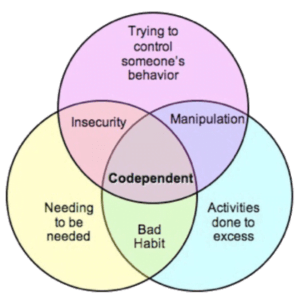
- Low self-esteem, poor self-worth, poor boundaries (boundaries are rules that a child or person has regarding what they will accept from others), and lack of assertiveness.
- Inability to make decisions because other people’s feelings or opinions are more important than their own.
- Difficulty identifying feelings and distinguishing between wants and needs.
- Feeling responsible for other people’s actions, choices, and well-being.
- Dependency on others to define who they are and how to live their lives, while neglecting their own needs.
- Inability to ask for or receive what they want and need from others.
- Inappropriate anger, passive-aggressive behavior, a feeling of helplessness and emptiness, dishonesty, fear of being abandoned by family or friends.
In other instances, a parent or parents might be addicts or have mental health problems that interfere with their ability to nurture their children in a healthy way. One of the common characteristics of codependency is that the sufferer has a lack of self-worth and a sense of inferiority.
The psychological ramifications can be very harsh as a person with this condition may not have a stable support group or friends. If they do, those friendships may be based on codependent needs rather than true feelings or empathy for one another.
Treatment for Codependent Behavior
There are many different therapies that have been proven effective for codependency. Some of them include:

- Cognitive Behavioral therapy
- Dialectical behavioral therapy
- Group therapy
- Self-help support groups
- Addictive behavior therapy
- Medication
- 12-Step programs such as Al-Anon, CoDa, and Codependents Anonymous
Many of these programs offer therapy on a regular basis in a one-on-one setting. Other programs, such as Al-Anon, meet weekly or more often in a group setting where people share their experiences with each other while receiving support.
Inpatient treatment is also commonly used for individuals who have severe codependency behaviors.
If you feel that your codependency symptoms are taking over your life and interfering with your ability to live in a healthy way. Then seek out help from someone who has the knowledge and training necessary to treat your condition.
There are many different ways you can lead a healthier lifestyle if you suspect that you may have codependency issues. Start out with small goals for yourself. For example, you might want to start exercising or begin a hobby that allows your creative side to flourish.
Once you start building up your life and self-esteem. It will become easier to live in a way that is more fulfilling. Codependency can often lead to an unhappy life filled with emptiness and disappointment.
However, if you seek out help, you can find the positive changes that will begin to build your self-esteem and give you a sense of fulfillment. If possible, attend therapy with others who are receiving treatment for similar problems. So that you can share experiences and support each other in leading healthier lives.
Difference Between Dependency And Codependency
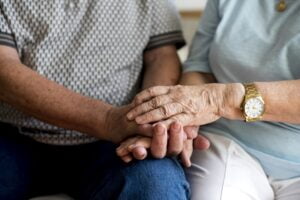 If you become dependent on someone, it means that your life revolves around this person and you spend a lot of time with them. You may not be able to sleep or eat until the next time you see them. When you’re in a codependent relationship, you feel like you need the other person in order to survive and accomplish things. Some people who are codependent don’t even know that they have this trait. Codependency is the result of emotions and relationships during the early developmental years in childhood and adolescence. Some codependent behaviors may begin to show when you are in your teen years. About 1/3 of the people who exhibit codependency symptoms do so because they grow up in an environment where it was normal for them to do so.
If you become dependent on someone, it means that your life revolves around this person and you spend a lot of time with them. You may not be able to sleep or eat until the next time you see them. When you’re in a codependent relationship, you feel like you need the other person in order to survive and accomplish things. Some people who are codependent don’t even know that they have this trait. Codependency is the result of emotions and relationships during the early developmental years in childhood and adolescence. Some codependent behaviors may begin to show when you are in your teen years. About 1/3 of the people who exhibit codependency symptoms do so because they grow up in an environment where it was normal for them to do so.
When someone is dependent on another person, they need that individual in order to function in life. They will often do whatever it takes to maintain the relationship because they feel empty without this person. The person with whom they are dependent feels a sense of power in the relationship. They may become jealous or controlling in order to keep their partner from leaving them.
People who have codependency issues often seek out people who have abusive characteristics. This can be true in less extreme situations as well when a codependent person chooses to be with someone who they think will add excitement and adventure to their lives. For example, if your partner suffers from alcoholism, you may choose to stay in the relationship because it is exciting and fun for you. You feel like you need this person in order to have an interesting life.
For more information on various types of treatment options, contact a therapist or support group in your area. These are all free services that are often offered by churches or mental health organizations.
A Word From MantraCare
Your mental health — your psychological, emotional, and social well-being — has an impact on every aspect of your life. Positive mental health essentially allows you to effectively deal with life’s everyday challenges.
For more information, please contact MantraCare. Relationships are an essential part of human life. It is the connection between people, and it helps us to form social bonds, understand and empathize with others. If you have any queries regarding Online Relationship Counseling experienced therapists at MantraCare can help: Book a trial therapy session
